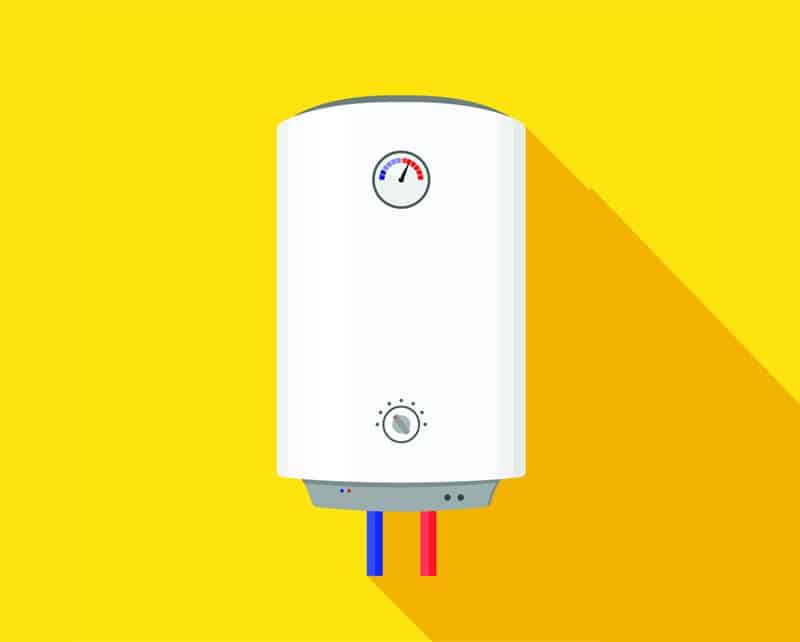
For most folks, hot running water is an indispensable part of life. It’s necessary for bathing, cleaning, and cooking, but sometimes it just seems like there’s never enough. The more people living in the house, the more your tank’s supply is being stretched, and nothing’s worse than water running cold right in the middle of a nice, steamy shower. If you’re running into this issue with regularity, it may be time to consider switching to a tankless water heater.
The Basics
Most households are powered by traditional water heaters: large cylindrical tanks with gas-powered burners or electric elements used to create heat. This fixture may be positioned in the garage, the attic or its own little closet, and typically provides heated water for the entire home. Units are available in various sizes, but even a model with a capacity of 50-plus gallons can prove insufficient when the washing machine, dishwasher, and showers are in consecutive or concurrent use.
Tankless alternatives are smaller, usually about the size of your average briefcase. Where tank-based models store heated water (which can result in greater waste), tankless units only fire up when the water’s actively running. This creates the potential for hot water that won’t run out, provided the demand isn’t too high at any given moment.
The Benefits
In addition to providing continuous heat, tankless models offer a number of potential advantages versus traditional heaters. Here are some of the perks to consider if you’re thinking of making the change:
Longevity: The expected lifespan for a typical water heater is about 10-15 years when properly serviced. By comparison, a tank-free installation could last upward of 20 years with normal use.
Efficiency: It’s an unfortunate reality that old-school water heaters tend to waste more resources overall. There are multiple reasons for this, including standby loss (water that runs cold while sitting in storage or traveling through pipes) and unused water left running while it heats up at the tap.
Footprint: Your average water heating tank stands over five feet high and can weigh over 100 pounds when empty. A gas or electric tankless water heater, comparatively, sits at about half the weight and just a fraction of the overall size—think of a basic birthday sheet cake compared to a towering wedding cake.
Cost Control: Put simply, wasting less water and power means lower utility costs. This can be an especially attractive benefit for larger families, as the U.S. Department of Energy estimates a potential 8 to 14% boost in efficiency for high-usage homes. Lower-demand residences stand to cut use by up to 34%, and houses with multiple tankless heaters can decrease energy needs by as much as 50%, with possible savings of over $100 every year.
Never run out of hot water: Tankless units are also beneficial when you have the need for prolonged output, such as when filling a whirlpool or hot tub. This is true for other high-demand appliances as well, including washing machines, dishwashers and so forth.
The Drawbacks
While tank-free options certainly come with their share of benefits, there are a few potential disadvantages to consider. Depending on the size of your home, available power options and the expected manner of use, tankless heaters may not be the best choice. Before making your decision, take time to evaluate these factors:
Gas Needs: Both electric and gas-powered units are available, but with a tankless gas water heater, there are a few added requirements for installation. For starters, they need proper ventilation; this calls for an exhaust flue or a direct outdoor vent.
Upfront Cost: Tankless heating offers ongoing savings, both via reduced utility bills and longer service life. Be aware, however, that a quality unit will generally cost you more to purchase and install when compared to traditional tanks.
Other Applications
Tank-free installations aren’t popular just for their everyday potential; there are plenty of reasons homeowners have taken to these dynamic devices. They’re commonly used to supplement an existing system—tank-based or otherwise—particularly in larger homes where hot water needs exist far from the primary source (i.e., guest bathrooms).
The Verdict
There is no true one-size-fits-all solution when it comes to water heaters; the better choice will ultimately boil down to the specifics of your home and family. Factor in your ability to absorb initial costs, the expected savings over time and the type of demand you expect to place on your system day-to-day.
For expert installation of your new water heater in the Houston area, contact Mission Air Conditioning (Texas State Board of Plumbing Examiners License M-41760). We also provide professional service and repairs for both tankless water heaters and tank-based models.



